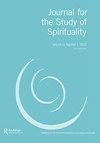Spirituality and economics
IF 0.8
0 RELIGION
引用次数: 4
Abstract
ABSTRACT This paper argues that mainstream economics is a materialist and reductionist science. It criticizes the core assumptions of mainstream economics – namely, the existence of ‘Homo Oeconomicus’ and the goals of profit maximization, economic efficiency, and economic growth; and shows that these goals lead to an economy that is not only unhealthy for people but is making the planet unsustainable. The paper makes a case for the development of a spiritually informed economics. It concludes that by helping to create ecological and human economic practices and policies, spiritually informed economics can support the flourishing of life on Earth (both human and non-human, present and future).灵性与经济学
本文认为,主流经济学是一门唯物主义和还原论的科学。它批判了主流经济学的核心假设——即“经济人”的存在以及利润最大化、经济效率和经济增长的目标;并表明,这些目标导致的经济不仅对人类不健康,而且使地球变得不可持续。本文为发展一种精神上知情的经济学提出了理由。它的结论是,通过帮助创造生态和人类的经济实践和政策,精神上的知识经济学可以支持地球上生命的繁荣(包括人类和非人类,现在和未来)。
本文章由计算机程序翻译,如有差异,请以英文原文为准。
求助全文
约1分钟内获得全文
求助全文
来源期刊

Journal for the Study of Spirituality
RELIGION-
CiteScore
2.50
自引率
7.10%
发文量
25
期刊介绍:
Journal for the Study of Spirituality is a peer-reviewed journal which creates a unique interdisciplinary, inter-professional and cross-cultural forum where researchers, scholars and others engaged in the study and practices of spirituality can share and debate the research, knowledge, wisdom and insight associated with spirituality and contemporary spirituality studies. The British Association for the Study of Spirituality (BASS) organises a biennial international conference and welcomes enquiries about membership from those interested in the study of spirituality in the UK and worldwide. The journal is concerned with what spirituality means, and how it is expressed, in individuals’ lives and communities and in professional practice settings; and with the impact and implications of spirituality in, and on, social policy, organizational practices and personal and professional development. The journal recognises that spirituality and spiritual values can be expressed and studied in secular contexts, including in scientific and professional practice settings, as well as within faith and wisdom traditions. Thus, Journal for the Study of Spirituality particularly welcomes contributions that: identify new agendas for research into spirituality within and across subject disciplines and professions; explore different epistemological and methodological approaches to the study of spirituality; introduce comparative perspectives and insights drawn from different cultures and/or professional practice settings; aim to apply and develop sustained reflection, investigation and critique in relation to spirituality and spiritual practices; critically examine the values and presuppositions underpinning different forms of spirituality and spiritual practices; incorporate different forms of writing and expressions of spirituality.
 求助内容:
求助内容: 应助结果提醒方式:
应助结果提醒方式:


